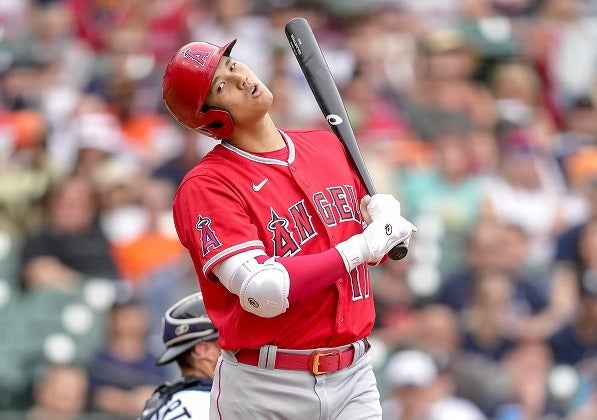The two-way star, who won the MVP of the American League last season, has continued to show impressive performances this season. Shohei Otani (Los Angeles Angels).
The idea is to figure out how to properly assess Shohei Ohtani’s value.
His pitching and hitting stats really tell the story of his greatness. While his batting average is only .266, he has hit 27 home runs with an OPS of .874, which is not bad for a pitcher. As a pitcher, he has won 10 games and maintained one of the highest averages in the league, with a 2.69 earned-run average and 12.69 strikeout-to-walk ratio.
Inevitably, expectations are high for him to become the league MVP for the second year in a row, but the man who is being strongly favored by the local media is Aaron Judge, the New York Yankees’ mainstay. The monster slugger has hit 46 home runs so far this season and is expected to surpass Roger Maris’ record of 61 home runs for the most in the A-League.
One of the reasons for Judge’s popularity is “a metric. WAR is a numerical value that evaluates players at different positions in terms of how much they contribute to winning.
To begin with, WAR stands for “Wins Above Replacement,” a statistic that estimates how many more wins a player has accumulated compared to the lowest-level player at each position. In recent years, WAR has become an important factor in determining Cy Young Award votes, and it is unique in that it allows pitchers and fielders to be compared on the same playing field.
In the WAR rankings of Baseball Reference, a U.S. baseball website used by reporters who vote for MVPs, Judge leads both leagues with a WAR of 6.9. Ohtani is in fourth place with 6.3. This result is one of the reasons why the Yankees’ mainstay has been persistently favored by the local media.
However, there are those who complain about the way WAR is calculated. Michael Welch, an American actor known as a rare baseball fanatic, pointed out that the current way of using the indicator “doesn’t make sense. On days when he doesn’t pitch, his numbers are deducted because he’s a designated hitter. But, he questioned, “A regular starting pitcher does not get a negative evaluation on days he doesn’t pitch.
What in the world does that mean?
In fact, when calculating WAR, a correction is made according to position in order to take into account the difference in defensive burden. While catchers and sluggers are given a large number of WAR points, lefties, righties, first basemen, and starting pitchers, who are considered to have a relatively low WAR, are given a low value of “0”. Designated hitters are given an unconditional negative rating.
Of course, Ohtani, who is a designated hitter on non-pitching days, also has a negative rating, with a -1.1 for his defensive contributions this season. Welch disagreed with this evaluation standard.
This may be a “blind spot” in WAR created by the two-way approach to pitching. It’s a problem,” Welch said, “and it’s not acceptable. I think there are a lot of problems, but the most important thing at this moment is to figure out how to properly assess Shohei Otani’s value, which I think everyone should agree on. Everyone should agree on that,” he said, calling for an improvement in the current situation.
Incidentally, the value of the defensive position correction is revised every year. Therefore, if the number of two-way players like Otani increases, it is not unlikely that the evaluation criteria will be revised.
#Angels up 1-0 early. Shohei Ohtani reached on this double that left the bat at 109.2 mph and scored on an RBI single from Luis Rengifo. pic.twitter.com/2cGWaYwWas
— Rhett Bollinger (@RhettBollinger) August 20, 2022


コメント